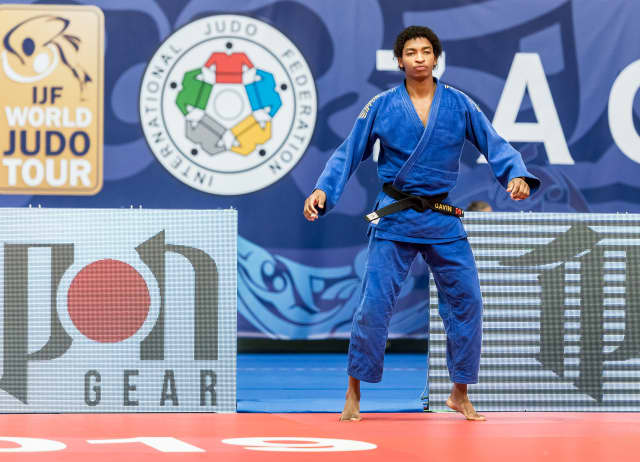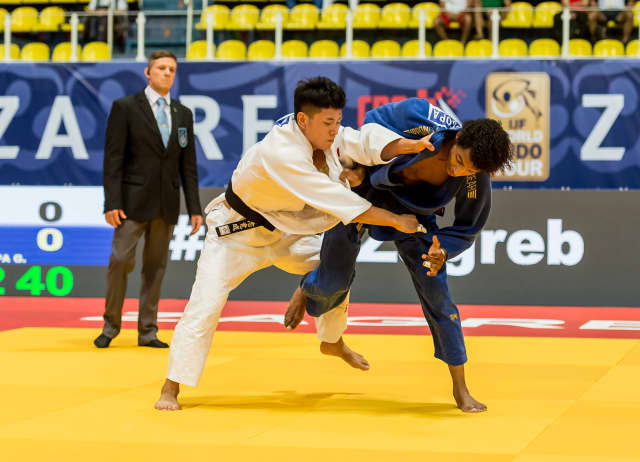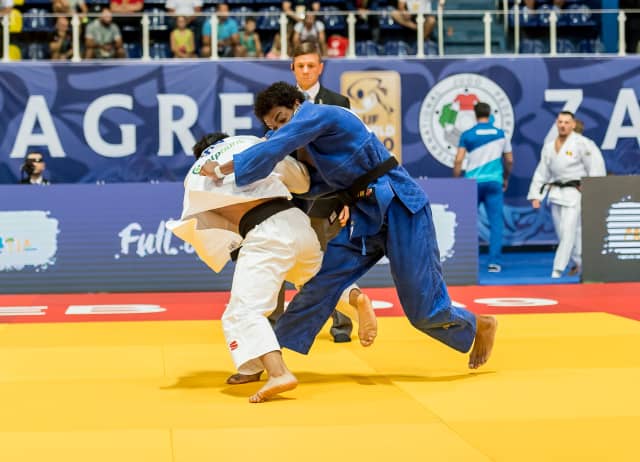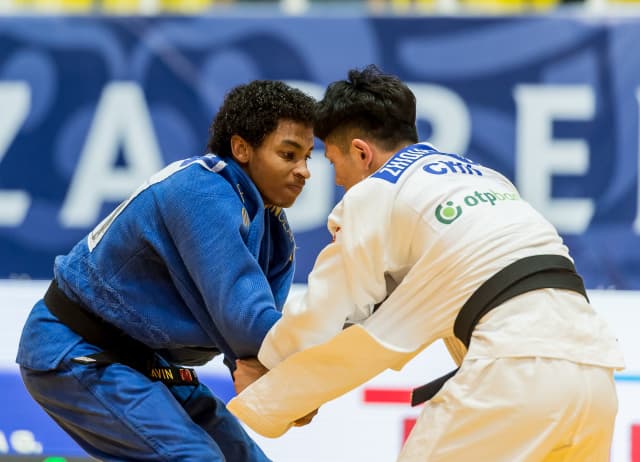“I’m one of the foreign athletes training in Japan, sponsored by the Japanese Olympic Committee,” explains Gavin. “I’ve been training hard and now the IJF is giving me also opportunities to take part in competitions so I can try to qualify for the 2020 Olympics.”
Destiny had a say in sending Gavin to Japan apparently. “My former coach was a student at Tokai University and unfortunately passed away in 2014 due to a freak accident,” says Gavin. “Ever since then, Tokai University has been helping me. To get the invitation from them was I think also based on them wanting to help Judo Botswana to grow as a legacy of my former coach.”
Gavin has been living in Japan for a whole month now. “I will stay until this current Olympic cycle is over and then I will return to my country and wait for the final list of qualification. If I do qualify, I will return to Tokai University to further prepare and train.”
Transition from training mode in Botswana to the Japanese style was not a piece of cake for the youngster. “In Japan they all train the traditional judo style, elsewhere you would have different styles, but not in Japan. Moreover, coming to live in another country, you first have to adapt to the foreign food. You also have to adjust to the time difference and then of course there is the rigorous training. It’s like stepping into someone’s house and see how they do things and then try to adopt. It’s actually very complicated because you have to change a lot of things of what you were used doing and to adjust to another level. For me personally it was very hard coming from Botswana in Africa. Living in Japan equals a completely different lifestyle, especially for training. The randoris, the long training sessions, the running sessions … it all requires a lot of discipline. You have to be very disciplined here in Japan,” says Gavin.
The young Botswana athlete already notices a difference. “Last week at the Budapest Grand Prix I didn’t do so well. My coach sat down with me, and he pointed out what I was doing wrong. Here in Zagreb I could stay in the match the full four minutes and could notice some improvements. I also felt more confident. I just made a small mistake, but it’s something I can work on. Now I’m also able to analyze my competition. I feel that it’s building my confidence and basically my technique as well.”
Living on his own in a faraway country without friends and family is also a big hurdle to take for the young judoka. “Sometimes it gets really hard and I become homesick. Modern technology helps, but then there is also the time difference. When I’m awake, they are sleeping at home. It gets sometimes very complicated. But I’m determined and when I get tired, I just push a little harder now,” Gavin ends.
But also, for his national team coach it’s a bit difficult with Gavin living and training at the other side of the planet. “As coach of Team Botswana, it’s not always easy to follow-up on Gavin now him being in Japan. However, it’s good for him to live and practice in a country where the judo level is so much higher than in Botswana,” says Franck Martial Moussima Ewane, the national team coach for Botswanan. “For me it’s more a practical problem. For each competition I have to see where he stands and what his needs are. The time is always short to adjust any problems. Checking on him every two months would be a good solution, to see what’s happening and how he progresses.”
Judo in Botswana is improving according to the coach. “Judo is not the most popular sport, but certainly one of the most respected. Last year we got a first medal on the IJF continental qualifying competition thanks to Gavin, still in Botswana then. He got gold in the African Open in Yaoundé. We have huge improvements in terms of players making the team, some juniors that are becoming stronger, so our national team is growing. We also try to improve the quality of the judokas and the number of participants in the younger categories.”
Botswana will be represented by three athletes at the Worlds.




